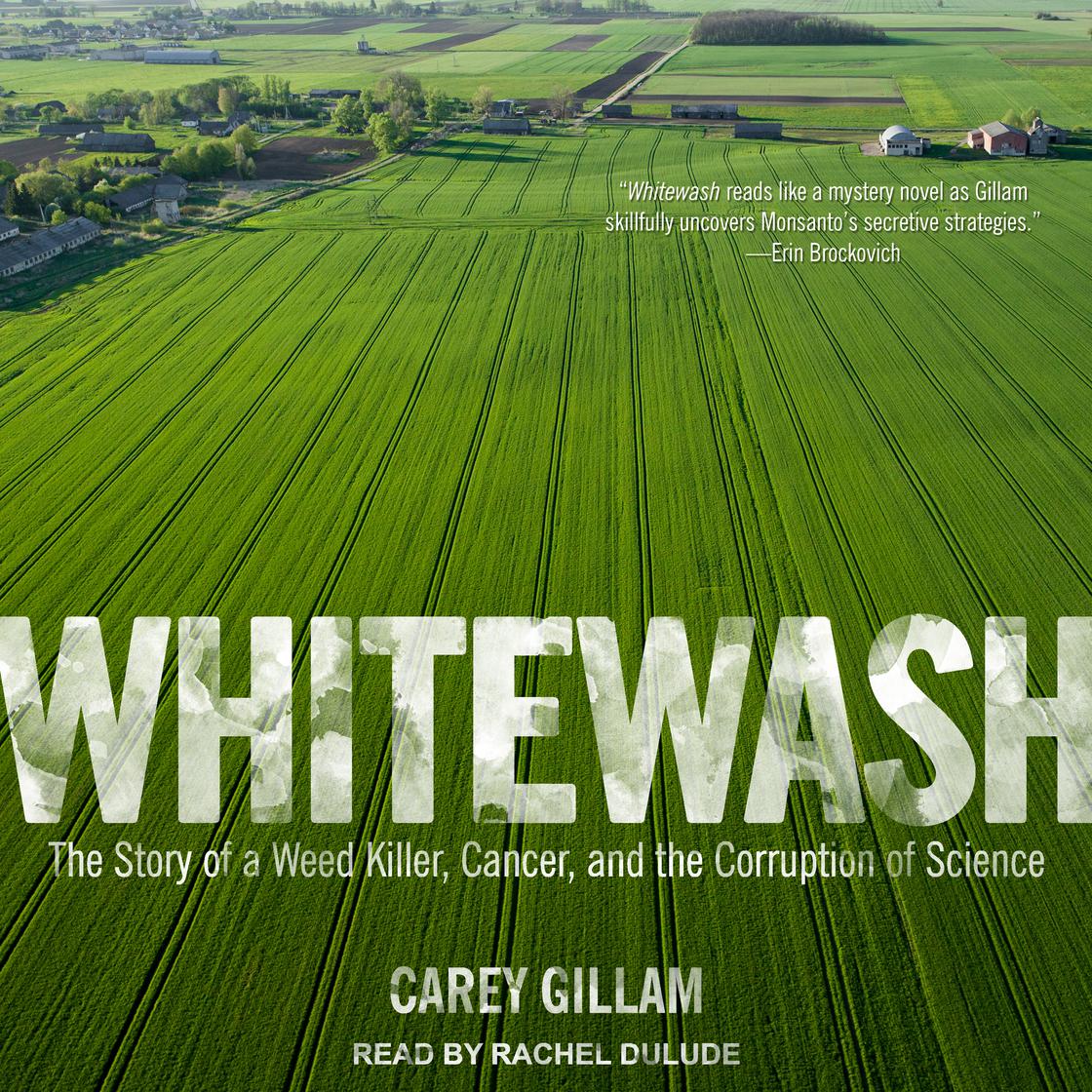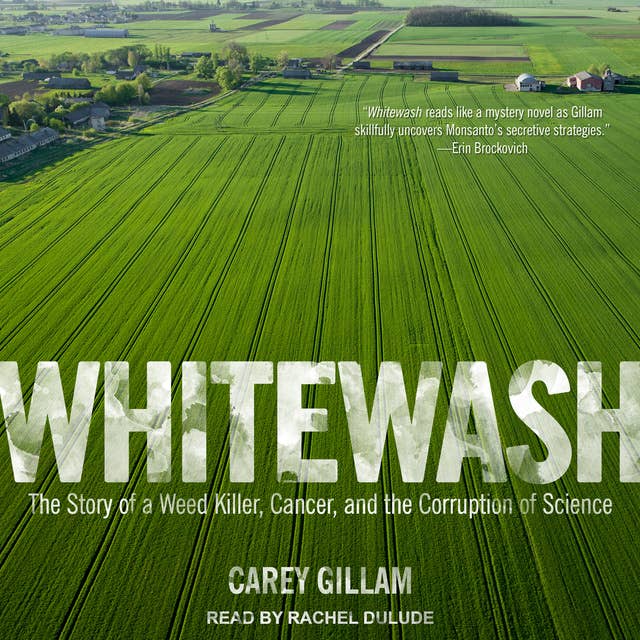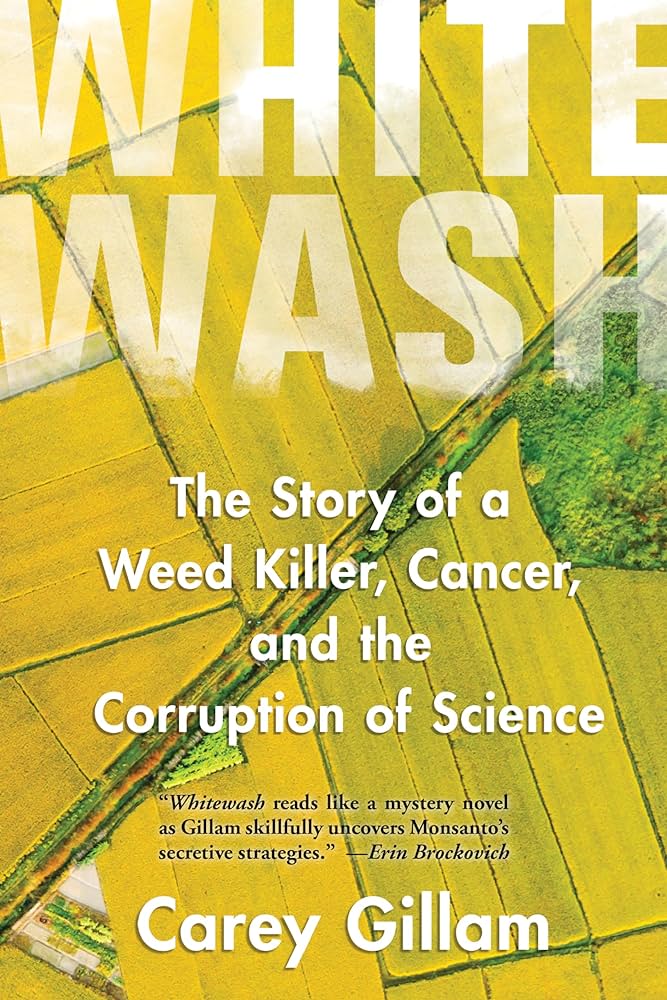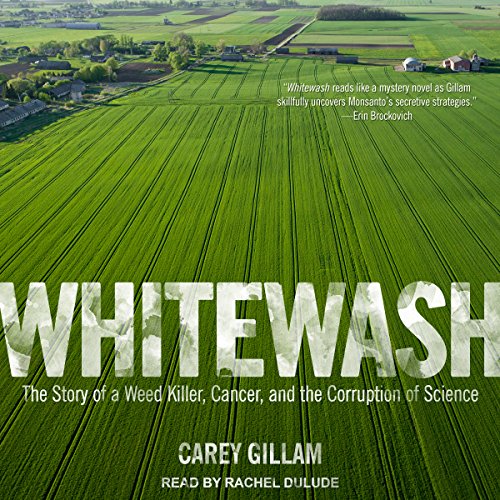Carey Gillam’s “Whitewash” audiobook investigates Monsanto’s role in hiding the dangers of its herbicide, Roundup. The book exposes corporate misconduct and regulatory failure.
“Whitewash” by Carey Gillam is a compelling audiobook that delves into the controversy surrounding Monsanto’s herbicide, Roundup. Gillam meticulously documents how Monsanto manipulated scientific research and regulatory processes to downplay the health risks associated with its product. This investigative work sheds light on corporate greed, public health concerns, and environmental impact.
Gillam’s thorough research and engaging storytelling make “Whitewash” a must-read for those interested in corporate accountability and environmental justice. The audiobook offers an eye-opening look at the lengths to which companies will go to protect their profits, often at the expense of public safety.
Introduction To ‘whitewash’
Carey Gillam’s “Whitewash” audiobook reveals the hidden dangers of glyphosate, the active ingredient in Monsanto’s Roundup. This investigative work uncovers the environmental and health impacts, urging listeners to rethink the use of common herbicides.
The Genesis Of Gillam’s Investigation
Carey Gillam started her investigation to find the truth. She wanted to uncover the secrets behind chemical use. Her goal was to reveal how these chemicals affect our world. She focused on glyphosate, a common herbicide. This chemical is used widely in farming. Gillam’s research was thorough and detailed. She talked to many experts and farmers. Her work shines a light on the hidden dangers of glyphosate.
Main Themes Explored In The Audiobook
The audiobook explores several important themes. One theme is the impact of glyphosate on health. Another theme is its effect on the environment. Gillam shows how corporations hide the truth. She reveals their tactics to mislead the public. The audiobook also discusses the fight for safer regulations. It highlights the voices of those affected by glyphosate. These themes make the audiobook a powerful and eye-opening experience.

The Rise Of Glyphosate
Glyphosate was discovered in the 1970s. Scientists found it killed weeds effectively. It became popular quickly. Monsanto introduced it to the market. The product was called Roundup. Farmers loved it because it worked well. Crops grew better with fewer weeds. Glyphosate use spread rapidly.
Many countries adopted glyphosate. Its use spread worldwide. Farmers in the United States used it a lot. Other countries followed. Glyphosate became the most used herbicide. It was used on millions of acres of crops. The chemical was in fields, gardens, and parks. It became part of daily life for many people.
Scientific Debates And Discoveries
Glyphosate is a common herbicide. Scientists have debated its safety for years. Some studies say it is safe. Other studies link it to cancer. These conflicting results confuse the public. Farmers and gardeners use glyphosate often. They trust it to kill weeds. Safety concerns make them worry.
Some studies claim glyphosate is harmful. These studies attract much attention. Critics say the studies are flawed. Supporters argue they reveal the truth. The debate affects laws and regulations. Some countries ban glyphosate. Others continue to allow its use. This creates a divided world.

Regulatory Battles And Public Policy
The EPA and FDA are key in regulating chemicals. They ensure public safety. They evaluate pesticides and other substances. Both agencies face challenges. Sometimes, their decisions are controversial. They must balance industry interests and public health.
Different countries have different rules. This can lead to disputes. Some nations have strict pesticide laws. Others are more lenient. These differences cause tensions. International bodies try to mediate. They aim for uniform standards. But achieving this is tough. Regulatory battles often arise.
Legal Wars And Victim Narratives
Carey Gillam’s “Whitewash” audiobook delves into legal battles and the stories of victims affected by corporate malfeasance. This powerful narrative exposes the hidden truths behind regulatory failures and environmental injustices.
Landmark Cases
Farmers have battled big companies in court. These cases have shaped the legal landscape. Many landmark cases involve dangerous chemicals. Courts have ruled against large corporations. Judges have ordered companies to pay hefty fines. These legal battles are crucial for public health. People now know more about the risks. Farmers are getting justice through these cases.
Personal Stories From The Frontlines
Many people have shared their personal stories. These stories come from the frontlines of the chemical wars. Farmers and families have suffered. Health issues are common among these victims. Some have faced life-threatening conditions. Their stories are heart-wrenching but important. They highlight the human cost of corporate greed. These narratives inspire others to speak up.
Environmental And Health Concerns
Many chemicals harm the environment. Pesticides can kill insects and plants. These chemicals contaminate water sources. Fish and animals drink this water. This makes them sick. Plants also suffer from these toxins. Soil quality gets worse. Crops do not grow well. The entire ecosystem suffers. Biodiversity reduces over time.
Exposure to certain chemicals poses serious health risks. Pesticides can cause cancer. Children are at higher risk. They can get sick easily. Pregnant women face dangers too. These chemicals can lead to birth defects. Farmers often get exposed. They suffer from skin problems and respiratory issues. Long-term exposure is very harmful.
Industry Response And Pr Campaigns
Big corporations often use strategic methods to handle criticism. They may fund research that supports their products. They also create advertising campaigns to improve their image. Some companies hire lobbyists to influence laws and regulations. These strategies help protect their interests and maintain their market position.
Public relations teams work hard to shape public perception. They send out press releases to share positive news. They organize events to highlight their community involvement. These efforts can boost their reputation and gain public support. Effective PR campaigns often reduce negative impacts on their business.
Reflections And Future Directions
Carey Gillam shares deep insights in her book Whitewash. She highlights the dangers of glyphosate. The chemical, widely used in agriculture, poses health risks. Gillam stresses the need for transparency. Companies should be honest about their products. She believes in the power of public awareness. Informed consumers can make better choices. Gillam’s work encourages us to stay vigilant. It calls for more research and regulations to protect public health.
The debate on glyphosate continues. Scientists, regulators, and activists are involved. Some believe it’s safe. Others see it as a threat. This debate impacts future policies. It influences farming practices. The discussion shapes our understanding of chemical safety. It drives innovation in agriculture. The future of glyphosate remains uncertain. But the debate ensures ongoing scrutiny. Public health and environmental safety remain top priorities.

Conclusion
Carey Gillam’s “Whitewash” audiobook exposes the hidden truths about glyphosate. This compelling listen is a must for anyone interested in environmental issues. It provides insightful research and a powerful narrative. Don’t miss out on this eye-opening experience. Learn, reflect, and take action for a healthier future.



